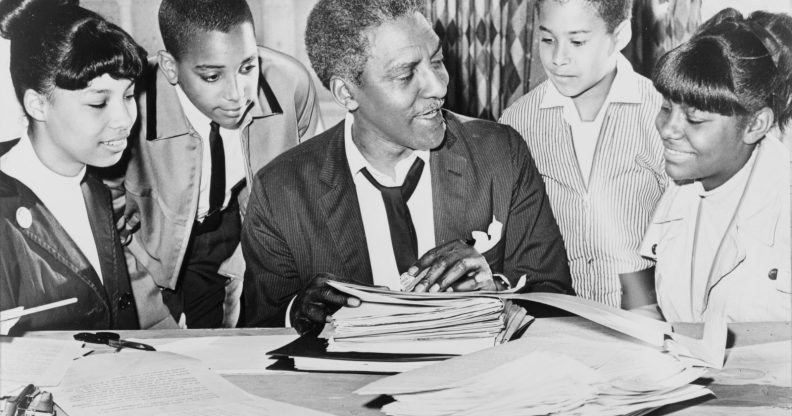Civil rights leader Bayard Rustin has finally been posthumously pardoned after being criminalised for gay sex in 1953

Bayard Rustin.
Gay Black civil rights activist Bayard Rustin has been posthumously pardoned of his historic gay sex conviction.
Rustin, who was a key strategist of the civil rights movement in the US, was pardoned by California governor Gavin Newsom.
Newsom has also launched an initiative to pardon gay and lesbian Californians who were prosecuted for having sex with someone of the same gender.
An executive order will establish a new clemency scheme to right what Newsom called an “egregious wrong”.
“In California and across the country, many laws have been used as legal tools of oppression, and to stigmatize and punish LGBTQ people and communities and warn others what harm could await them for living authentically,” Newsom said in a statement.
Last month, on the 67th anniversary of his arrest, two Californian politicians called for a posthumous pardon for Rustin, who was jailed for 50 days and forced to register as a sex offender for having consensual gay sex.
The push for Rustin’s pardon was driven by California’s state senator, Scott Wiener, chair of the senate LGBTQ caucus, and assembly member Shirley Weber, chair of the senate Black Caucus.
California’s law criminalising consensual sex between adults of the same gender was repealed in 1975.
Bayard Rustin: Unsung hero of queer people of colour.
Rustin was arrested on January 21, 1953, after being discovered having sex with two men in a parked car. The arrest came just hours after he’d given a speech in Pasadena as part of a lecture tour on anti-colonial struggles in West Africa.
After 50 days in Los Angeles county jail, Rustin was charged with vagrancy – a common charge against LGBT+ people at that time – and forced to register as a sex offender.
After his arrest, and as part of an effort to discredit the civil rights movement, Rustin’s entire arrest file was read into the Congressional record by a South Carolina senator called Storm Thurmond.
This led to several civil rights leaders publicly distancing themselves from Rustin – despite the key role he had played.
After being sidelined from the civil rights movement for being gay, Rustin became an unsung hero among queer people of colour.
“Rustin was a great American who was both gay and black at a time when the sheer fact of being either or both could land you in jail,” Weber said in a statement. “This pardon assures his place in history.”

